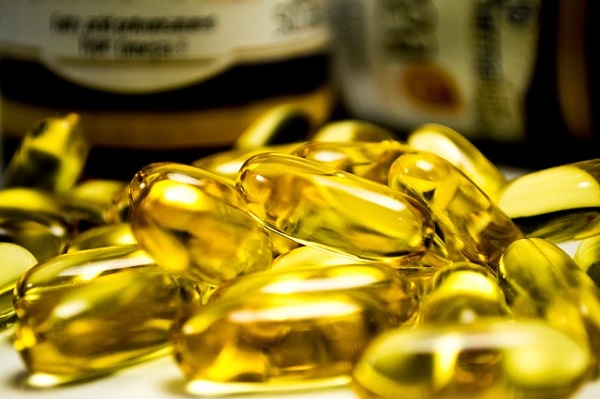Words: Dr Ryan N HARRISON
Depression is nothing new — it’s the stuff that keeps some companies [and, practically an entire industry] in business. Some even speculate that such companies don’t actually intend to ‘cure’ depression, for then it becomes less lucrative. Small comfort for you, if you are among the millions of people who often feel down, sad, lethargic, hopeless, lackadaisical — the symptoms go on and on.
The fact that depression affects the entire person — body, mind, and spirit — certainly makes it both a holistic concern and something worth looking at a bit more closely.
The good news is that there is much you can do for yourself to ease depression. In fact, depending on the source of your depression, you may be able to turn things around entirely on your own. Did you know that depression can be linked to nutrition? And, not only that — recent research suggests that it may be caused by inflammation in the brain as a direct result of imbalanced diet.
Enter one French psychiatrist. Dr David Servan-Schreiber, MD, PhD, Co-founder of the Center for Complementary Medicine at the University of Pittsburg Medical Center and author of The Instinct to Heal: Curing Stress, Anxiety, and Depression Without Drugs and Without Talk Therapy, has taken depression and other mood disorders head on. And, his approach doesn’t seem to string you along [like, say, a pharmaceutical company’s might]. Rather, Dr Servan-Schreiber suggests you can treat depression successfully with something as remarkably unremarkable as omega-3 fatty acids.
Time for a short lesson in nutrition.
Essential Fatty Acids [also called ‘EFAs’] are ‘essential’ because your body cannot manufacture them, yet you require them to live. There are two related types of EFAs: omega-3s [alpha-linolenic acid] and omega-6s [linoleic acid]. In general, omega-6s come primarily from grains; they can be found in most vegetable oils and animal fat. Though you can get omega-3s in some seeds, or nuts, the highest concentrations are available in algae, plankton, and other sea sources that usually find their way to us via fish and other seafood that eat these sea-plants and accumulate the fatty acids in their flesh. Dr Servan-Schreiber maintains that one of the results of our modern Western diet is that we consume far more omega-6s than -3s, and this has significant deleterious results, especially on our brains.
Meta-Study
A meta-analysis of double-blind randomised placebo-controlled trials to estimate the efficacy of omega-3 polyunsaturated fatty acids [PUFAs], especially, docosahexaenoic acid [DHA] and eicosapentaenoic acid [EPA], in the improvement of depression was conducted.
The study applied a systematic bibliographic search in PubMed and EMBASE for articles published prior to December 20, 2017. This meta-analysis was performed using RevMan 5.3 and R 3.4.3, and means and standard deviations were calculated in fixed- or random-effects models based on the results of the Q-test. A sensitivity analysis was also conducted to evaluate the stability of the results, and publication bias was evaluated by a funnel plot and Egger’s linear regression analysis.
This search resulted in 180 articles; we analysed 26 studies, which included 2,160 participants. The meta-analysis showed an overall beneficial effect of omega-3 polyunsaturated fatty acids on depression symptoms [SMD = −0.28, P = 0.004]. Compared with placebo, EPA-pure [=100 per cent EPA] and EPA-major formulations [≥60 per cent EPA] demonstrated clinical benefits with an EPA dosage ≤1gm/day [SMD = −0.50, P = 0.003, and SMD = −1.03, P = 0.03, respectively], whereas DHA-pure and DHA-major formulations did not exhibit such benefits.
Current evidence supports the finding that omega-3 PUFAs with EPA ≥ 60 per cent at a dosage of ≤1gm/day would have beneficial effects on depression. Further studies are, of course, warranted to examine supplementation with omega-3 PUFAs for specific subgroups of subjects with inflammation, severity of depression, and the dose response for both EPA and DHA supplementation.
- Liao Y, Xie B, Zhang H, et al. “Efficacy of Omega-3 PUFAs in Depression: A Meta-Analysis.” Transl Psychiatry, 9, 190 [2019]
Go For It
The Instinct to Heal… points to persuasive research indicating that depression may actually be an inflammatory disease. If this is the case, supplementing with omega-3s may be incredibly beneficial in the treatment of depression. Why? Because one of the well-known effects of omega-3s in the body is its ability to decrease inflammation and ‘feed’ the brain [two-thirds of which is composed of fatty acids]. Relatively high doses of omega-3s [1-3gm/day] are required to benefit from their anti-inflammatory and anti-depressive effects. A nutritional consultant would be able to help you choose and use a good omega-3 supplement.
Studies have shown that an entire range of depressive symptoms improves with adequate supplementation of omega-3s. So, if you’re feeling bluer than blue, but don’t want to be hooked on prescription medications for life, explore this EFA.
It may be just what the [holistic] doctor ordered.

